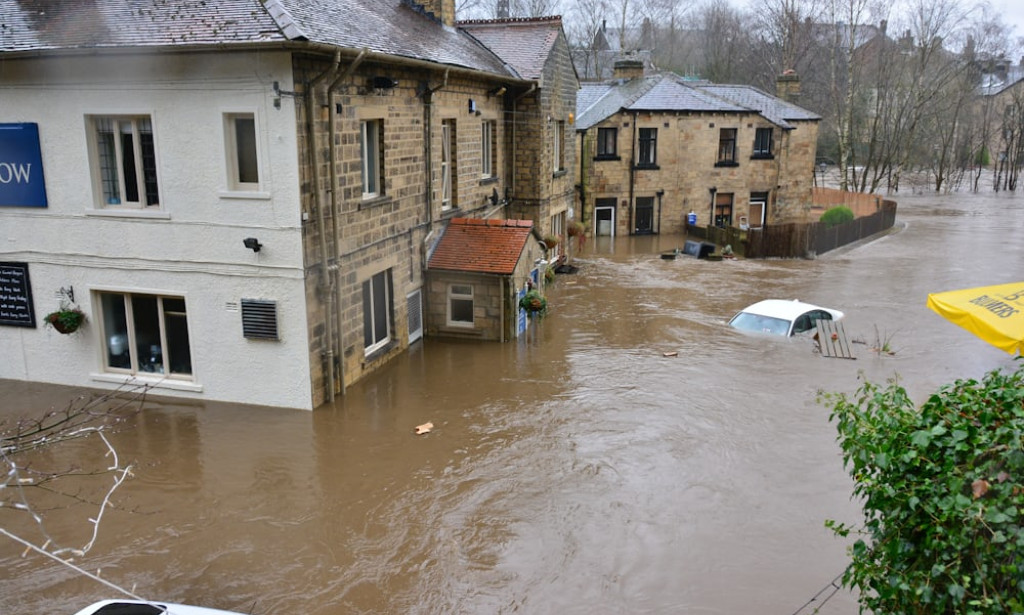WHAT IS FLOOD?
A brief influx of water onto ordinarily dry terrain is known as flooding. The most frequent calamity in the US is flooding. Entering flood waters or failing to flee flooded areas might result in harm or even death.
FLOOD MAY : Be caused by precipitation, snowfall, storm surges, coastal storms, dam overflows, and other water systems. Developed rapidly or slowly. Flash floods can happen suddenly. Inflict landslides, damage structures, interfere with transportation, and cause outages
IF THERE'S A FLOOD WARNING
[ ] Get a safe place to stay immediately.
[ ] Avoid driving, swimming, and walking in flood waters. Don't drown, turn around!
[ ] Avoid crossing bridges over swiftly flowing water.
[ ] The kind of flooding will determine
If instructed to evacuate, do so.
Go to a higher floor or higher ground.
Remain at your current location.
[ ] Getting Ready for a Flood
Recognise Your Flood Risk To learn about the many types of flood risk in your area, visit FEMA's Flood Map Service Centre. But keep in mind that flooding is not linear on a map. Flooding can occur anywhere it can rain. Register for the warning system in your community. The National Oceanic and Atmospheric Administration (in your country) and the Emergency Alert System. Emergency alerts are also broadcast via radio stations. The National Risk Index for your nation is a user-friendly, interactive tool that indicates which communities are most vulnerable to flooding and other natural disasters.
[ ] Invest in flood insurance.
Invest in or extend your flood insurance coverage. Flooding is not covered by homeowner's insurance. The best time to purchase is far in advance of a disaster, as policies usually take up to 30 days to take effect. Participate in the National Flood Insurance Program to obtain flood coverage.
[ ] How to Get Ready for Floods
Make a plan for your household, including your pets, so that you and your family know what to do, where to go, and what you will need to protect yourselves from flooding. Learn and practice evacuation routes, shelter plans, and flash flood response. Gather supplies, including non-perishable foods, cleaning supplies, and water for several days, in case you must leave immediately or if services are cut off in your area.
[ ] In the Event of an Emergency
Important papers should be stored in a waterproof container. Make digital copies that are password-protected. Keep your property safe. Transfer valuables up the levels. Clear the gutters and drains. Put check valves in place. Think about a sump pump that runs on a battery.
KEEPING SAFE WHEN THERE IS FLOODING
[ ] Evacuate immediately, if told to evacuate. Never drive around barricades. Local responders use them to safely direct traffic out of flooded areas.
[ ] Speak with your healthcare practitioner. if you are ill and require medical care. If at all possible, wait for more care instructions and the availability of refuge. In the event of a medical emergency, dial the emergency number for your region.
[ ] If you are confined within a building, reach the top floor. When someone signals for assistance, only then should you climb onto the roof. To prevent becoming trapped by rising floodwaters, never enter a closed attic.
AFTER A FLOOD, HOW TO STAY SAFE
[ ] For information and directions, pay attention to the authorities. Only go home when the authorities indicate it's safe to do so.
[ ] When cleaning up, put on boots, protective clothes, and heavy work gloves. If you're cleaning mould or other particles, wear a mask or other appropriate face covering.
[ ] Buildings with visible or odorous mould development or indoor water leaks should not be entered by people with asthma, other respiratory diseases, or immune system suppression. Children shouldn't help clean up after disasters.
[ ] Be mindful that your home may include snakes and other animals.
[ ] Be aware of the risk of electrocution. Do not touch electrical equipment if it is wet or if you are standing in water. Turn off the electricity to prevent electric shock if it is safe to do so.
[ ] Wading in floodwater should be avoided since it may be contaminated and contain hazardous debris. The water may potentially get electrically charged due to underground or dead power wires.
[ ] Only operate gasoline-powered equipment, such as generators, outside and away from windows.


You must be logged in to post a comment.